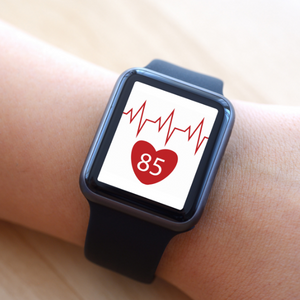With Valentine’s Day this month, romance is in the air and heart motifs surround us at every turn. Those heart symbols provide an excellent reminder that it’s also Heart Health Month. How often do you check in with your heart to see how it’s doing?
There’s an abundance of ways to help monitor your heart health, especially with today’s technology. Smart watches, smart phones, and even your mobile phone have built in apps to help you track your health. These don’t replace checking in with your doctor, but they do help provide you with valuable data and possible warning signs to share with your healthcare provider.
“It is important to be proactive when it comes to your health: seek advice when noting new symptoms and get help early. Know your numbers and be an active participant in your own healthcare.” – Dr. Wendy Smeltzer, Medical Director at INLIV
Tips on how to keep your heart healthy
Step to it!
Yes, one of the best things you can do for your heart health is to move your body. Set a goal of how many steps you want to take, or how far you want to go on foot. While the commonly held belief is that you should aim for 10,000 steps a day, set a goal that works for you that can help keep you motivated.
Most smart watches will log your daily steps, and your smart phone may be tracking that information as well. Have an iPhone? Check the built-in ‘health’ app for data.
Monitor your heart rate
Heart rate monitors have been ‘de rigueur’ with those who exercise regularly to help improve athletic performance for quite some time, yet monitoring your heart rate makes good sense for all of us, whether we’re athletes, weekend warriors or couch potatoes! When you visit your doctor, it’s often one of the first things to be checked.
Your wearable device may monitor and record your resting heart rate, though you can also check it manually. So, what should you watch for?
Resting heart rate
Everyone’s resting heart rate may be different, and it’s natural for your rate to fluctuate, too. But if your resting heart rate is consistently high, or seems to be on an upward climb over time, it’s important to note the information and speak with your doctor.
Check your blood pressure
High blood pressure or hypertension often has no symptoms, increasing the need to monitor it regularly, particularly as we age. If left untreated, high blood pressure can result in heart disease, stroke and aneurysm.
Blood pressure monitors can be easily purchased at pharmacies and online. The Heart and Stroke Foundation of Canada provides some great tips information on managing your blood pressure here.
To help you keep track of your blood pressure readings, there are apps like the Blood Pressure Companion App, available on Apple and Android. Having these reports that show the trend of your blood pressure readings may be helpful for your physician, too.
Tips to help lower your blood pressure
- Exercise regularly
- Eat a healthy diet
- Stop smoking
- Reduce alcohol intake
- Reduce the amount of sodium you consume
- Cut back on caffeine
- Reduce stress. To help reduce stress, try a free meditation or mindfulness app, like Breathe, or Calm
Make sleep a priority
Do you check your sleep stats on your Fitbit or Oura ring each morning, elated when you see a great sleep score? Getting a good night of sleep is a great goal to have! It can make you more productive, can aid brain health, improve mood, and it’s good for your heart.
According to the American Heart Association, “sleep disorders have been recognized in recent years as health factors that can increase the risk for heart attack and stroke. A 2018 study found sleep disorders, particularly sleep apnea, are prevalent among people at risk for stroke. Another recent study found people who slept fewer than six hours a night – compared with those who slept six to nine hours – had a 20% higher risk of heart attack.”

For the latest about INLIV, follow us on Facebook, Twitter, and LinkedIn.


